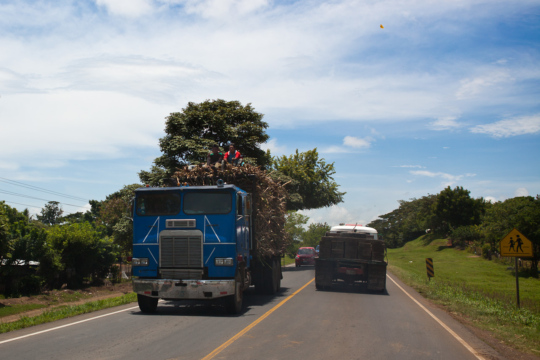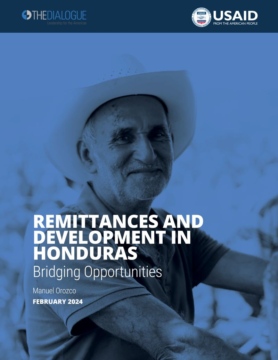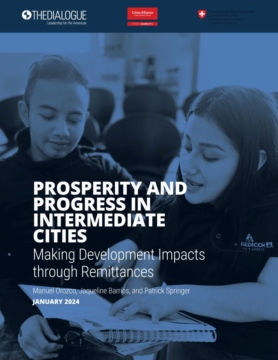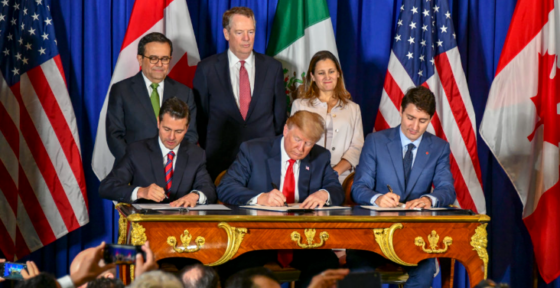
Will the USMCA Accord Survive an Upcoming Review?
A Latin America Advisor Q&A featuring experts’ views on the USCMA review.
A Latin America Advisor Q&A featuring experts’ views on the USCMA review.
On April 11, 2024, the Inter-American Dialogue partnered with Brazil-China Business Council (CEBC) to hold the joint event “New Infrastructure—Emerging Trends in Chinese Investment in Latin America,” which centered around the prospect and impact of China investment in LAC and specifically in Brazil, as well as the LAC region’s approach to fielding opportunities and risks associated with Chinese engagement.
El consenso global, dentro y fuera del país, es que el principal objetivo de Nicaragua como nación es derrotar el proyecto de sucesión dinástica del régimen actual, para abrir el camino hacia una transición democrática. La realidad obliga a diferenciar entre la lucha por alcanzar el cambio político, y cómo gobernar democráticamente. El denominador común, sin embargo, sigue siendo el mismo, crear una coalición con capacidad de lograr el cambio, y con capacidad de gobernar democráticamente.
On April 9, 2024, the Inter-American Dialogue released the report “State Collapse and the Protection of Remittance Payments.” The report, produced by Manuel Orozco, director of the Migration, Remittances, and Development program, and Patrick Springer, program associate, examines the extent to which the current crisis in Haiti can be characterized as state failure. The report examines state failure in Haiti, its effects on the daily lives of Haitians, the Haitian economy, and how it is impacting remittance systems in the country and concludes with a strategy for ensuring successful and safe remittance transfers to the Caribbean nation.
On February 16, 2024, the Inter-American Dialogue’s Migration, Remittances, and Development program invited representatives from across the remittance industry to discuss the potential for developments in the industry and to discuss their outlook for 2024.
On April 3, 2024, the Inter-American Dialogue released the memo “Risk Mitigation Efforts for Radicalization and Dynastic Succession in Nicaragua.”
On April 3, 2024, the Inter-American Dialogue released the memo “State Capture in Nicaragua – The Case for International Pressure.” The report, produced by Manuel Orozco, director of the Migration, Remittances, and Development program, highlights how members of the Nicaraguan government have engaged in state capture, the role of international financial institutions in preventing state captures, and provides a look into external financing, its consequences, and the Nicaraguan economy at-large.
On March 22, 2024, the Inter-American Dialogue released the report “Remittances to Cuba and the Marketplace in 2024.” The report, produced by Manuel Orozco, director of the Migration, Remittances, and Development program, analyzes money transfers to Cuba, their changing composition, the evolution of origination regulation, and this evolution’s impact on the Cuban economy.
En Nicaragua el estado de la economía está totalmente capturado por un régimen que se enriquece a costa del pueblo y el endeudamiento externo. En 2024, la economía crecerá igual que en 2023 gracias a las remesas y los préstamos, pero en vez de distribución equitativa de la riqueza, lo que hay es concentración del dinero para los nuevos ricos del régimen.
On February 27, 2024, Manuel Orozco, director of the Migration, Remittances, and Development program at the Inter-American Dialogue, presented, “Migración, Remesas y Desarrollo en Guatemala Tendencias y Recomendaciones” (or “Migration, Remittances, and Development in Guatemala – Trends and Recommendations”) to students at the Centro Universitario de San Marcos (CUSAM).
En una entrevista con CNN en Español, Manuel Orozco, director del programa Migración, Remesas y Desarrollo del Diálogo Interamericano, conversó con Gabriela Frías sobre la crisis humanitaria en Haití, sus consecuencias migratorias y la respuesta del gobierno de los Estados Unidos frente a una nueva ola migratoria proyectada.
La propaganda Ortega-Murillista del “buen gobierno” contrasta con la realidad que agobia a los nicaragüenses. El régimen prioriza el gasto e inversión en carreteras a costa de la inversión social, en momentos en que el país se encuentra en una situación desesperante por la precariedad de su capital humano.
On February 28, 2024, the Inter-American Dialogue released the report “Remittances and Development in Honduras – Bridging Opportunities.” The report, produced by Manuel Orozco, director of the Migration, Remittances, and Development program analyzes migration patterns, characterizes remittance recipients, and reports on key financial inclusion metrics in the country. The report concludes with a pathway that outlines a strategy for leveraging remittances for development in the country.
On January 12, 2024, the Inter-American Dialogue released the report “Prosperity and Progress in Intermediate Cities: Making Development Impacts through Remittances.” The report, produced by Manuel Orozco, director of the Migration, Remittances, and Development program, Jaqueline Barrios, country coordinator for Guatemala, and Patrick Springer, program associate, reviews results and impacts of the program’s local development initiative in the Guatemalan municipalities of San Marcos, and Amatitlán.
Margaret Myers, director of the Asia & Latin America Program, joined BBC Newshour to discuss the newest members to the BRICS intergovernmental organization.
 Video
Video
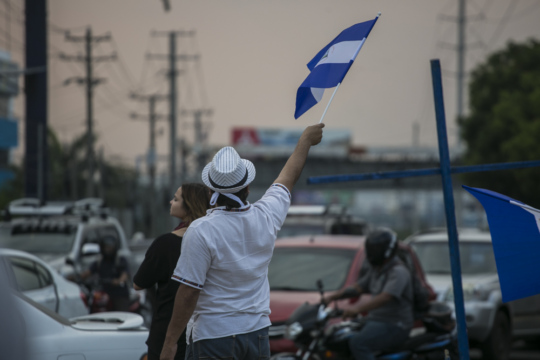
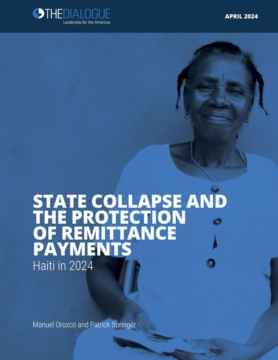
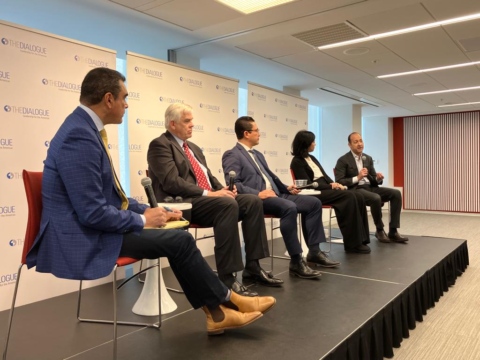 Video
Video
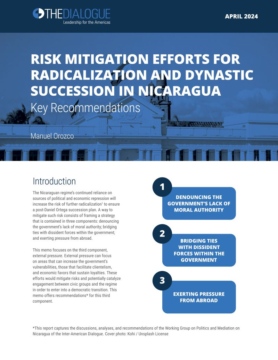
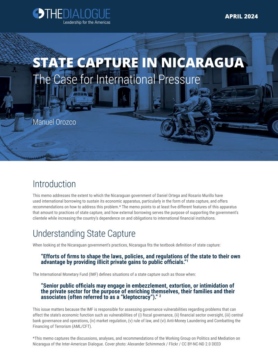
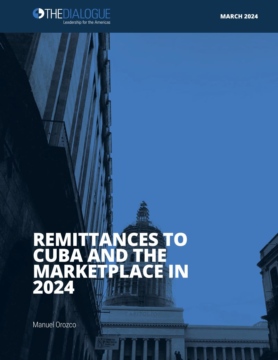
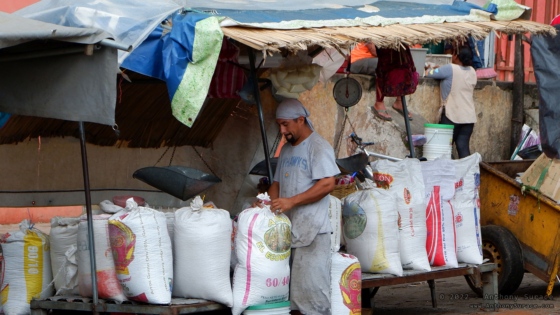
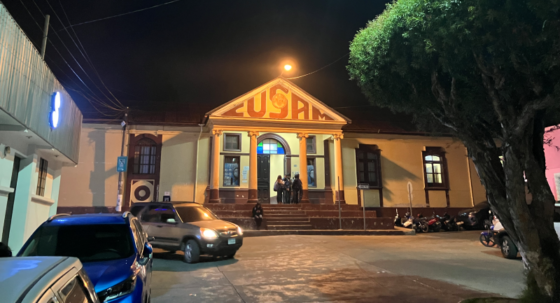
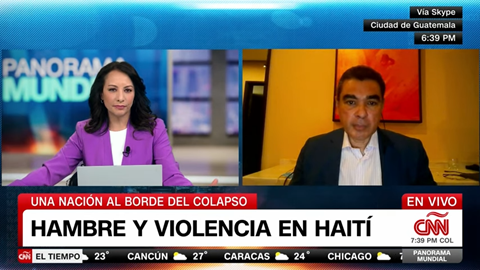 Video
Video
